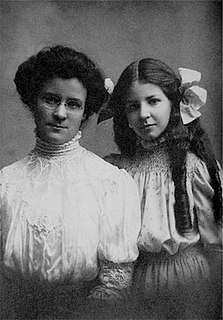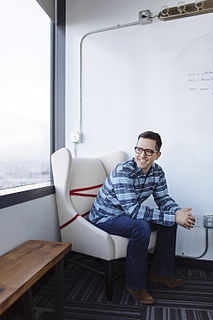A Quote by Nir Eyal
Users who continually find value in a product are more likely to tell their friends about it.
Related Quotes
Most clients expect experience design to be a discrete activity, solving all their problems with a single functional specification or a single research study. It must be an ongoing effort, a process of continually learning about users, responding to their behaviors, and evolving the product or service.
If you think of the product as a service, then the separate parts make no sense - the point of a product is to offer great experiences to its owner, which means that it offers a service. And that experience, that service, comprises the totality of its parts: The whole is indeed made up of all of the parts. The real value of a product consists of far more than the product's components.

































